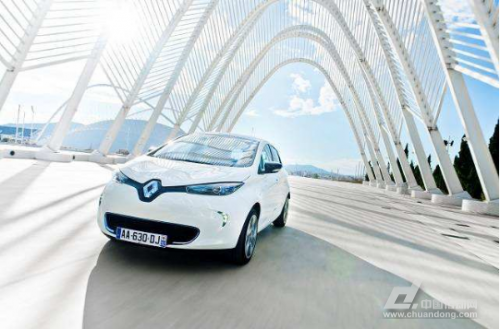When Japanese friends came to visit their homes, they often talked about the future of China’s auto industry, especially the development of electric vehicles in China in recent years.
"Does the Chinese like to buy Tesla?" Japanese friends often ask. So I took them downstairs and stood at the side of Beijing’s Wudaokou, counting “Teslaâ€. Basically, it would take a few minutes to get a pass.
Japanese friends were amazed that Beijing's Tesla had more than Tokyo! Of course, I will tell them that the future growth of China's electric vehicle market is not only due to the "Tesla" produced by the United States, but also to many domestic brands that thrive.

The scale and growth potential of China's electric vehicle market are also regarded by relevant Japanese companies. One of the key components in electric vehicles is lithium batteries, and lithium batteries are the strengths of Japanese companies. Lithium battery technology developed earlier in Japan, so Japanese companies have a number of patents in the lithium battery electrolyte and metal materials such as positive and negative electrodes, has a wealth of experience in observation and detection of lithium battery purity electron microscope and lithium battery recovery. This allowed them to smell huge business opportunities in the Chinese market.
For example, lithium batteries require extremely high material purity. If metal chips are mixed in, the battery may catch fire or explode. Once foreign matter is discovered, it is necessary to immediately stop production. The production scale of car batteries is huge. Discontinued production means that enterprises face economic losses of several million yuan or even tens of millions of yuan. Therefore, EV companies need to conduct rigorous inspections with high-precision electron microscopes in order to prevent this from happening.
Hitachi High-tech Company, which is known for its production of leading-edge electron microscopes, directly invested in Shanghai in March this year and opened Hitachi High-tech Science Park. It focuses on electron microscopes and is equipped with a variety of related analytical instruments. The intention of targeting the Chinese market in the future is very clear. .
With the popularity of electric vehicles, there will be a large number of waste lithium batteries need to be recycled. There are also huge business opportunities.
Mitsubishi Materials Corporation has been known for producing copper and lead in the past and is now shifting its focus to the development of lithium battery recycling. Fujifilm, another Japanese company known for producing cameras, also has related technologies for battery recycling and is actively seeking opportunities for cooperation in China.
Japan's Nissan Motors announced in February 2018 that it plans to invest 60 billion yuan in the direct production of electric vehicles in China.
Japanese companies are very clear that the world's largest electric vehicle market in the future must be in China, and lithium-ion battery production centers for automobiles are also here.
“We have already seen that China has published more papers than Japan, second only to the United States, ranking second in the world. This shows that China is already in many fields of research,†said Zheng Yihua, head of the Analytical Device Department of Hitachi High-Tech's China Business Group. The world's leading level, so our focus is also changing - the original China is just a market for customers to provide products and solutions, the future of China will become the center of research and development of leading-edge products, leading to technological change."
Interface Drivers Receivers Transceivers
Shenzhen Kaixuanye Technology Co., Ltd. , https://www.icoilne.com